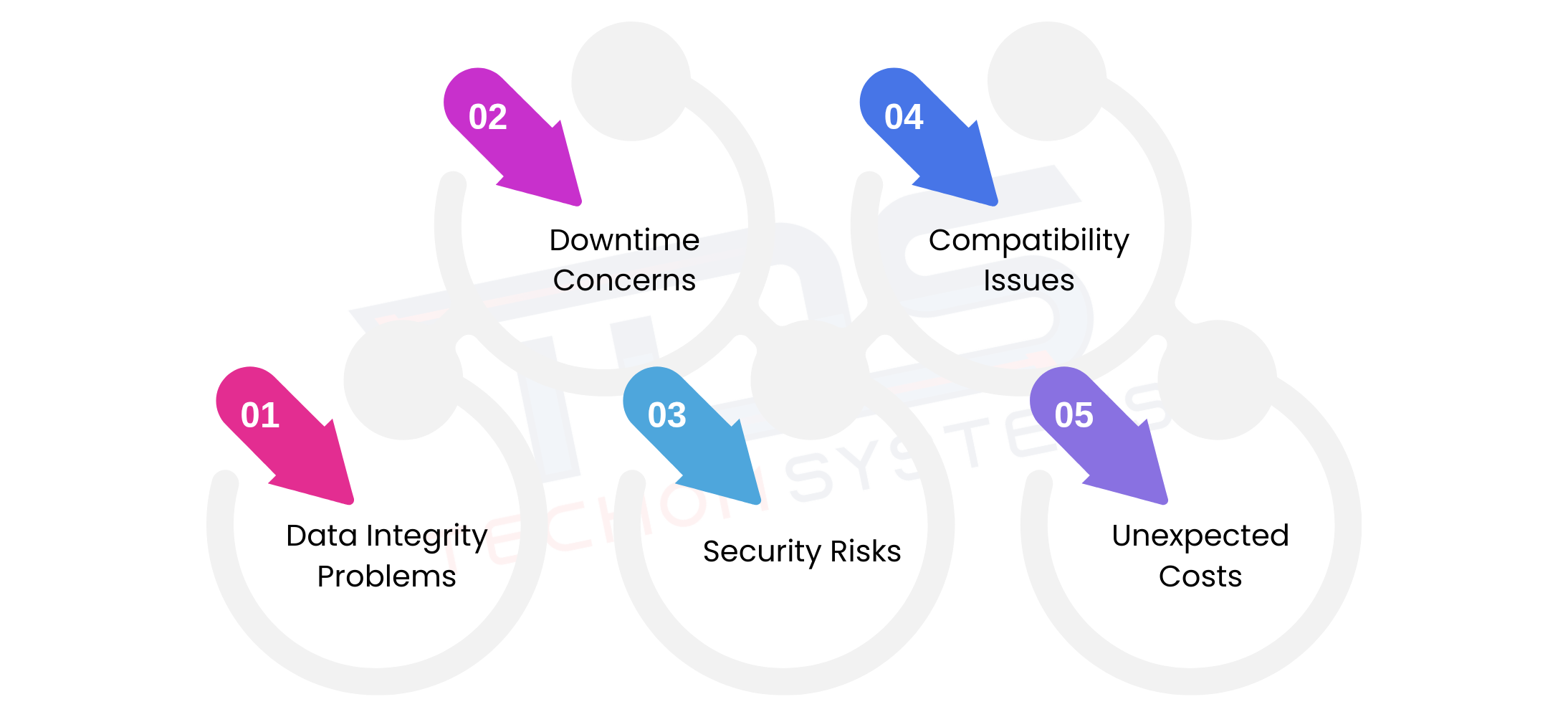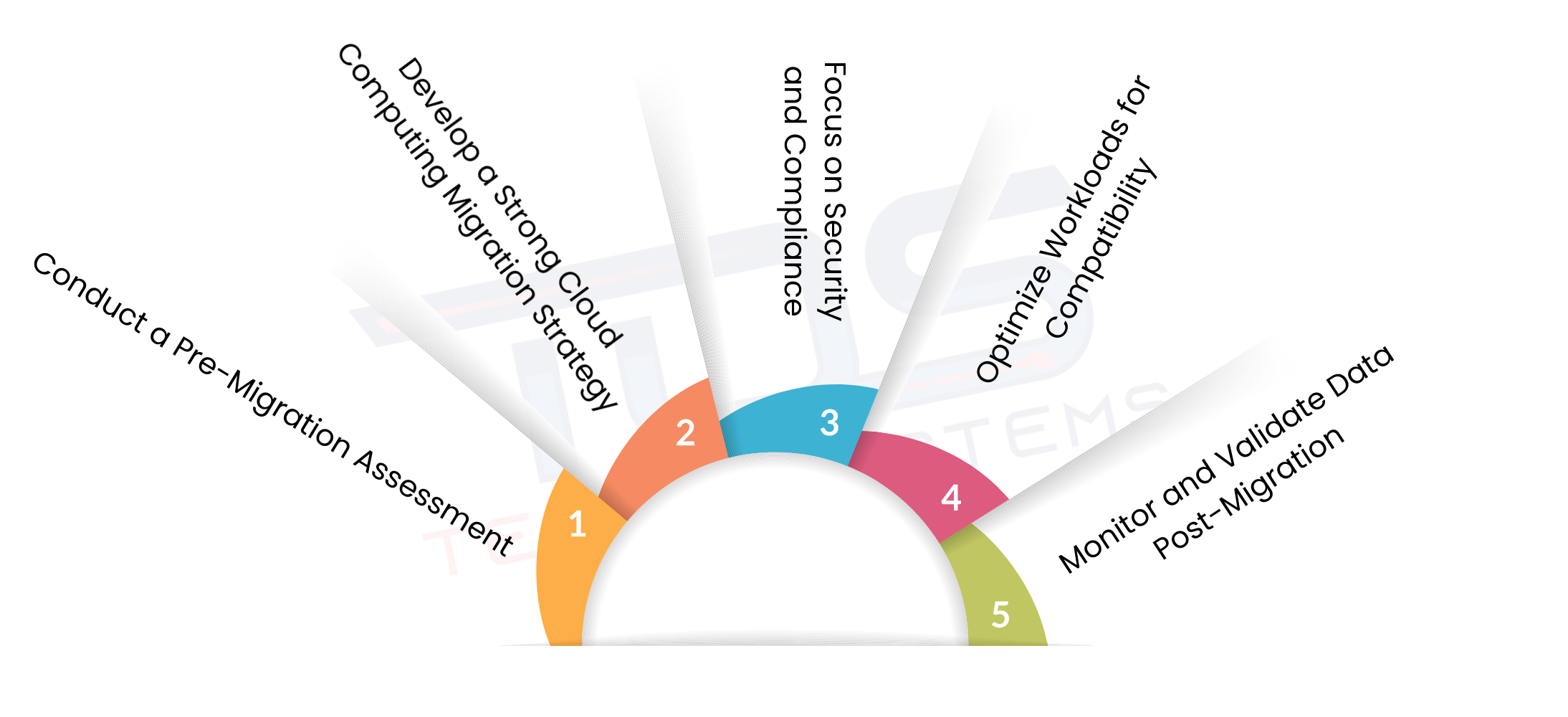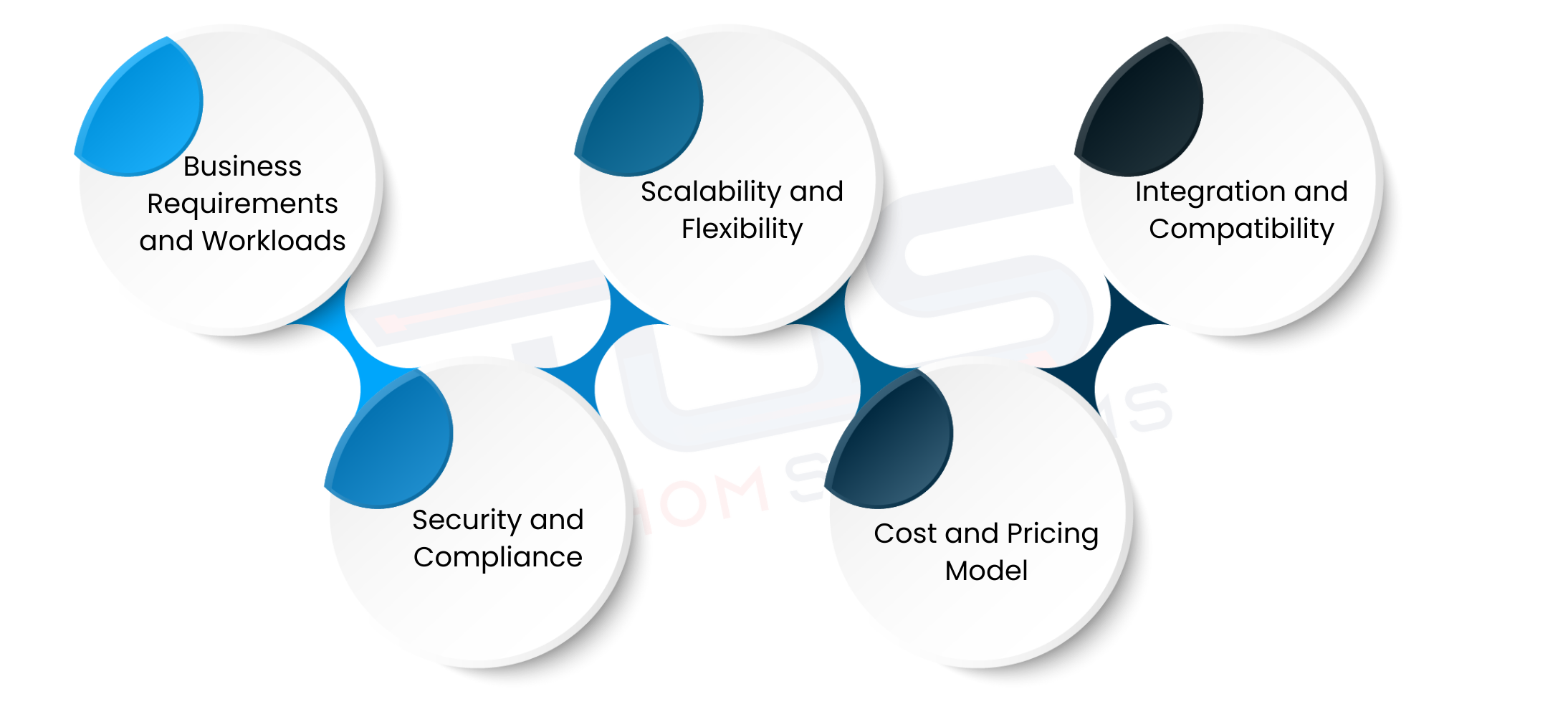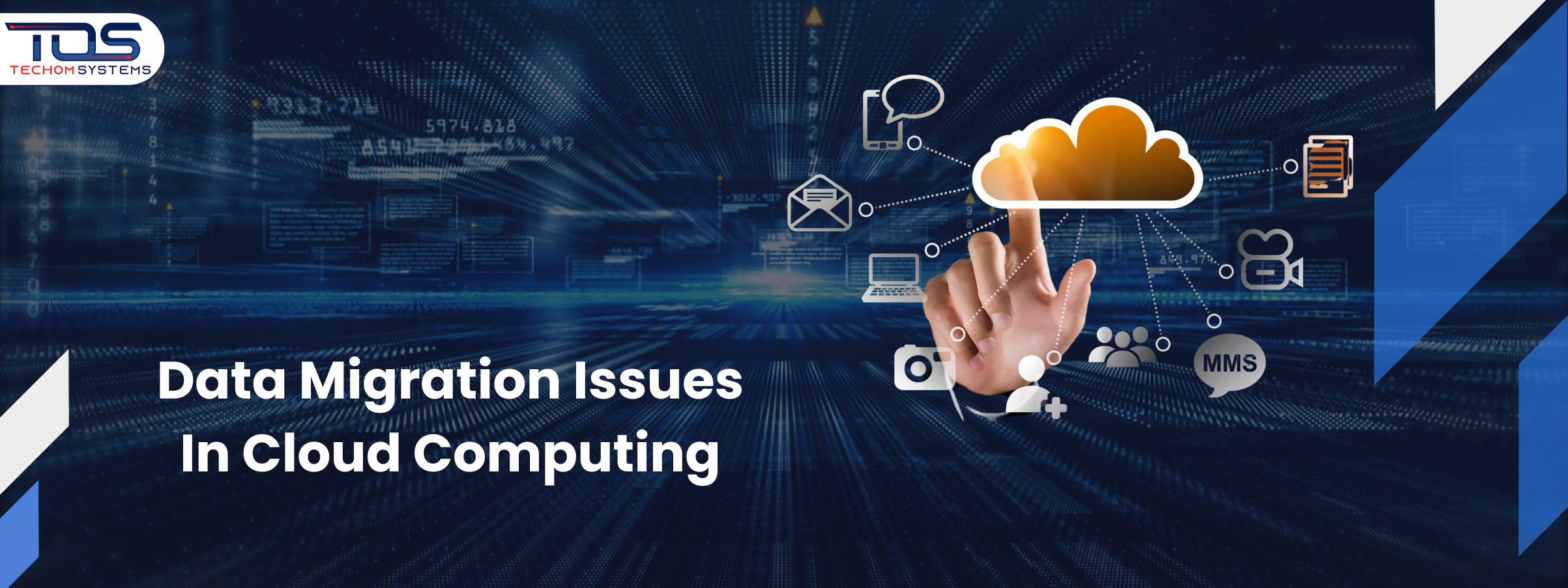Cloud adoption has rapidly shifted from being an option to becoming a necessity for modern enterprises. Businesses today operate in highly competitive environments where agility, scalability and cost efficiency determine success. While the benefits are immense, organizations often face data migration issues in cloud computing during the transition. These challenges can range from maintaining data accuracy to ensuring security and compliance, making it essential for companies to plan strategically before moving to the cloud.
If you are finding difficulty in data migration in cloud computing, then you are not alone. With the right approach, businesses can overcome these hurdles and achieve a seamless migration without compromising data integrity. Careful planning, a well defined strategy and expert guidance enable organizations to minimize risks, reduce downtime and ensure that critical information is securely transferred to the cloud.
Why Data Migration Matters In Cloud Computing?
Data is the foundation of every modern business, influencing decision making, customer experience and daily operations. As companies move to the cloud, the value of data grows even further, since it becomes the backbone of analytics, automation and collaboration. However, the process of transferring this critical information comes with data migration issues in cloud computing that must be carefully managed. Even minor mistakes during migration such as incomplete transfers, duplication or mismatched formats, can result in significant setbacks. These issues may lead to financial losses, unplanned downtime or even legal consequences if compliance regulations are violated.
Addressing data migration challenges early ensures that organizations maintain business continuity during the transition. A secure and well planned process for the migration of application to cloud protects data integrity, minimizes disruptions and allows businesses to fully leverage the benefits of their new cloud environment.
Facing data migration issues in cloud computing? Contact TECHOM Systems today and book a free consultation to ensure a smooth, secure and efficient cloud migration.

Common Data Migration Issues In Cloud Computing

Companies often encounter similar problems when attempting to migrate. Understanding these data migration issues in cloud computing is the first step toward overcoming them:
Data Integrity Problems
During migration, critical information can be lost, duplicated or corrupted, which can disrupt operations and decision making. Ensuring that migrated data precisely matches the source system is essential to maintain accuracy. Engaging an Office 365 migration consultant helps businesses implement validation checks, auditing mechanisms and reconciliation processes to detect inconsistencies and prevent errors that could compromise business continuity.
Downtime Concerns
Migrating large volumes of data often requires systems to be offline for a period, which can interrupt business operations. Extended downtime affects productivity, customer service and revenue. Without a tested cloud computing migration strategy, even small disruptions can cascade into significant operational delays. Planning phased migrations, scheduling transfers during low traffic periods and preparing contingency plans are critical to minimizing downtime impact.
Security Risks
Sensitive information is particularly vulnerable during data transfer. Unauthorized access, data breaches or interception can occur if security protocols are insufficient. Encrypting data both in transit and at rest, implementing strict access controls and following compliance standards are vital steps to mitigate risks in cloud migration. Regular security audits and monitoring further strengthen protection throughout the migration process.
Compatibility Issues
Legacy applications and systems may not seamlessly integrate with modern cloud platforms, leading to performance bottlenecks or software failures. Compatibility testing, application refactoring or updating infrastructure components ensures that workloads run efficiently after migration, avoiding operational disruptions. Organizations should assess all dependencies and workflows to guarantee smooth interoperability.
Unexpected Costs
Cloud migration can incur hidden expenses such as additional storage, licensing fees, bandwidth usage or extended project timelines. These costs can quickly escalate if not carefully planned. Organizations should conduct detailed cost assessments, include contingency budgets and optimize resource allocation to keep migration expenses under control.
Effective Ways To Handle Data Migration Challenges

Overcoming data migration challenges requires a structured and strategic approach. Partnering with trusted experts like TECHOM Systems can help businesses minimize risks and streamline the process.
1. Conduct a Pre-Migration Assessment
A thorough evaluation of existing systems provides insight into critical datasets and system dependencies. By understanding data structures and application interconnections, businesses can prioritize workloads, prevent complications and ensure essential operations continue smoothly during migration.
2. Develop a Strong Cloud Computing Migration Strategy
A reliable cloud computing migration strategy provides a roadmap for success. It should include:
- Timelines for phased migration
- Defined roles and responsibilities for IT teams
- Testing protocols to validate data accuracy
- Rollback plans in case of errors
3. Focus on Security and Compliance
To reduce risks in cloud migration, companies should:
- Encrypt sensitive data in transit and at rest
- Comply with regional data protection laws
- Regularly monitor access controls and permissions
4. Optimize Workloads for Compatibility
Testing applications in the cloud environment ensures that legacy systems align with new platforms. TECHOM Systems assists businesses in identifying potential conflicts and optimizing performance before full scale deployment.
5. Monitor and Validate Data Post-Migration
Validation ensures that all data has been transferred completely, accurately and without corruption, maintaining the integrity of business operations. Continuous monitoring after migration allows IT teams to detect discrepancies, performance issues or security concerns early. By addressing these problems promptly, organizations can prevent future disruptions, maintain operational continuity and maximize the benefits of their cloud environment.
How To Choose The Right Cloud Platform?

Selecting the right cloud platform is a critical step in minimizing data migration issues in cloud computing and ensuring long term success. Not every cloud solution suits every business, so careful evaluation is essential. The following factors should guide the decision making process:
Business Requirements and Workloads
Assess the types of applications, data volumes and workloads your organization runs. Some platforms perform better with compute intensive applications, while others are optimized for storage-heavy workloads. Following Onedrive migration best practices and understanding your specific needs ensures that the chosen platform aligns with operational goals.
Security and Compliance
Security is a top priority during migration. Evaluate the cloud provider’s encryption standards, access controls and compliance with industry regulations such as GDPR or HIPAA. Ensuring that your provider meets compliance requirements reduces risks in cloud migration.
Scalability and Flexibility
A cloud platform should support growth, allowing businesses to scale resources up or down as needed. Flexibility in resource allocation ensures cost efficiency and avoids performance bottlenecks during peak demand.
Cost and Pricing Model
Understand the provider’s pricing structure, including storage, bandwidth and additional service fees. Conduct a cost benefit analysis to ensure long term affordability and avoid unexpected expenses.
Integration and Compatibility
Check if the cloud platform integrates seamlessly with existing applications, databases and tools. Compatibility reduces downtime, improves performance and simplifies data migration.
By carefully analyzing these factors, businesses can choose a cloud platform that not only supports a smooth migration but also provides a scalable, secure and cost effective environment for long term growth. TECHOM Systems guides organizations through this selection process, ensuring that the chosen platform aligns perfectly with operational requirements and minimizes data migration challenges.
Ready to simplify your cloud migration? Contact TECHOM Systems now and get a free consultation for a seamless and secure transition to the cloud.

Is Your Business Ready With Backup and Disaster Recovery Planning?
Even with careful planning, unexpected issues can arise during cloud migration, such as data corruption, accidental deletion or system failures. Having a robust backup and disaster recovery plan ensures that your business can continue operations and recover quickly from disruptions. Regular backups of critical data and applications, stored securely and accessible when needed, form the foundation of this strategy.
Testing recovery procedures periodically helps ensure that systems can be restored efficiently without data loss. By integrating disaster recovery planning into the overall cloud computing migration strategy, businesses can minimize downtime, reduce financial losses and maintain customer trust. TECHOM Systems supports organizations in designing and implementing reliable backup and disaster recovery solutions, safeguarding business continuity during cloud transitions.
Choose TECHOM Systems For Cloud Migration Services
As one of the leading experts in cloud migration, TECHOM Systems provides secure and scalable solutions, including Microsoft Office 365 migration services. From managing OneDrive migration tools to ensuring smooth integration with mobile device strategies, each service is designed to ensure operational success while minimizing data migration issues in cloud computing.
Why should you choose us:
- Expertise in Cloud Migration: TECHOM Systems has extensive experience managing complex migrations for businesses of all sizes, ensuring minimal downtime and smooth transitions.
- Microsoft Office 365 Migration Services: From emails and OneDrive to SharePoint and Teams, TECHOM Systems ensures seamless Office 365 migration without disrupting daily operations.
- Data Security and Compliance: Advanced encryption methods, strict access controls and adherence to industry standards help protect sensitive data throughout the migration process.
- Customized Migration Strategies: Every business is unique. TECHOM Systems develops a tailored cloud computing migration strategy that aligns with specific workloads, priorities and long term goals.
- Proactive Risk Management: Potential data migration challenges and risks in cloud migration are identified and mitigated proactively, reducing operational disruptions and business impact.
Frequently Asked Questions
#1: What are the four types of data migration?
Ans: The four types of data migration are Storage Migration (moving data between storage systems), Database Migration (transferring databases), Application Migration (shifting apps to new environments) and Business Process Migration (moving workflows and processes to the cloud).
#2: What is an example of cloud migration?
Ans: An example of cloud migration is moving a company’s on-premises email system, like Microsoft Exchange, to a cloud platform such as Microsoft Office 365. This allows secure access, scalability and collaboration while reducing infrastructure costs.
#3: What is data migration in AWS?
Ans: Data migration in AWS is the process of moving an organization’s digital data from on-premises systems or other cloud platforms to Amazon Web Services. It ensures secure, efficient transfer while maintaining data integrity and enabling scalable cloud operations.
Conclusion
In this blog, we explored the critical aspects of data migration issues in cloud computing and how businesses can navigate these challenges effectively. From ensuring data integrity and minimizing downtime to implementing a strong cloud computing migration strategy, every step is vital for a successful transition. Partnering with TECHOM Systems allows organizations to leverage expert guidance, secure migration practices and ongoing support. With their assistance, businesses can not only overcome migration challenges but also fully harness the scalability, flexibility and efficiency of the cloud for long term growth and operational excellence.
Ready to overcome data migration issues in cloud computing? Contact TECHOM Systems today and book a free consultation to ensure a seamless, secure and efficient cloud migration for your business.


Technical Specialist with 10+ years of experience in IT solutions, data engineering and AI-driven automation. At TECHOM Systems, she focuses on delivering secure, scalable and business aligned technology strategies. She applies advanced technical skills to develop scalable solutions and integrate emerging technologies for optimized digital workflows.




